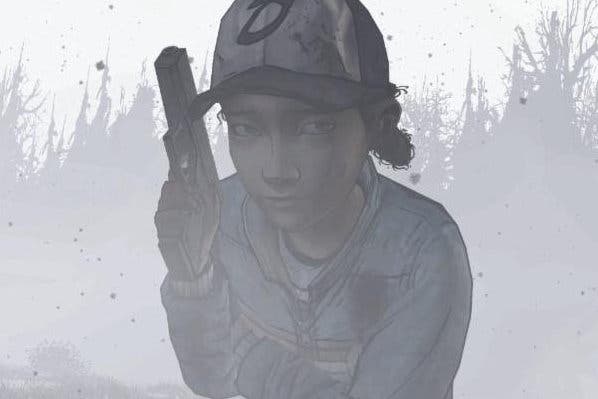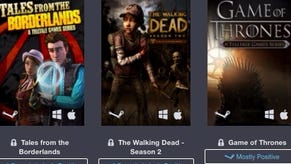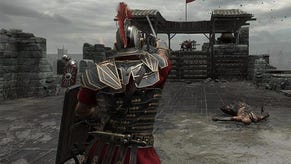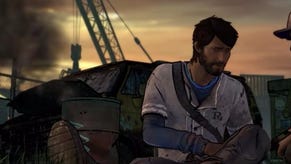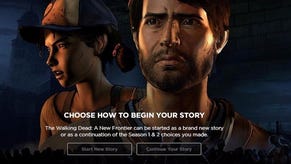The Walking Dead: No Going Back review
Baby steps on the road to Hell.
Note: As with all episodic game reviews, this review contains spoilers for previous episodes and, to some extent, for the episode in question. Proceed with caution!
You know things are bad when zombies showing up comes as a relief. Zombies are easy. You shoot them. You smash them. You run from them. You survive. They're simple. But people... people are complicated. Especially people who have only broken hopes for the future, people for whom the one tragedy capable of pushing them over the edge came at least five tragedies ago.
No Going Back is the amazing finale to a somewhat shaky season. It's amazing because it finally plunges The Walking Dead into a world of greys with no good options. Previously, it's always been clear what the 'good' option was, with just a little wiggle-room for whether or not it's doable or worth the risk. This time, Clementine finds herself a moral compass with nowhere to point and with no real choice but to try to hold the group together until they find their way to true safety or until their psychological issues magically work themselves out. Because, of course, that's totally likely to happen.
This second season of The Walking Dead has been one of great moments let down by the lack of a strong hand on the tiller. There's been a feeling that the writers of each episode haven't entirely known where it's going or what their predecessors had in mind. This has led to clunky moments like Episode 4's outright cull of characters and to frequent back-and-forth over how to write Clementine as both a protagonist and as part of the group, or over how capable she should be.
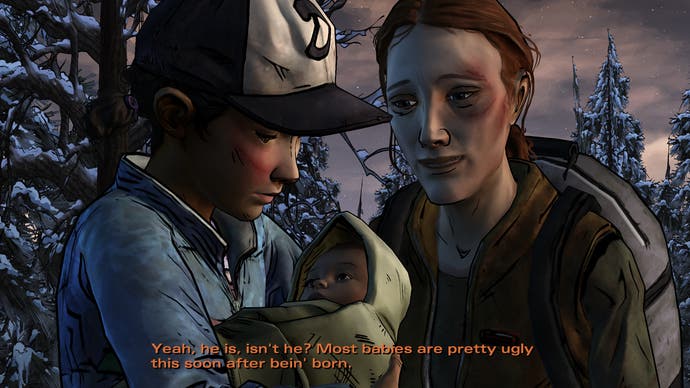
This episode doesn't negate those issues. It still feels like there was a lot of flapping around behind the scenes, a lot of plotting done by a game of Politically Correct Whispers and a reluctance to play with the formula - even when the jump scares were played out and the push for constant forward momentum meant wasting the potential of Carver, the brutal, Michael Madsen-voiced villain who stole the show (even many scenes he wasn't in).
This episode, however, is the most worthy send-off possible. The biggest revelation is that, just as season one was Clementine's story seen through Lee's eyes, this has been Kenny's story as seen by Clementine: a tale of how easily a good man, a friend who only wants the best for those around him, can slip and become a Carver. It's beautifully done. Playing as his friend, his confidante and the only one he trusts, you can see the warmth and heart still inside him, even as those around him increasingly only see the monster. Yet there's no denying that they're right to be afraid - not only for themselves, but for the baby in his arms whom he constantly talks about raising 'right'. Not weak like Duck was. Not this time.
It's amazingly well written and performed, as every Kenny scene this series has been. It's horrifying that he can go from caressing a baby and joking with Clem one minute to savagely beating a member of the group the next, for little reason. It's out of character to the point that even he has moments of quiet realisation around Clem, but he just can't stop himself. We empathise with the monster because we've seen how much it took to turn him into one, while still seeing it from his victim's point of view.
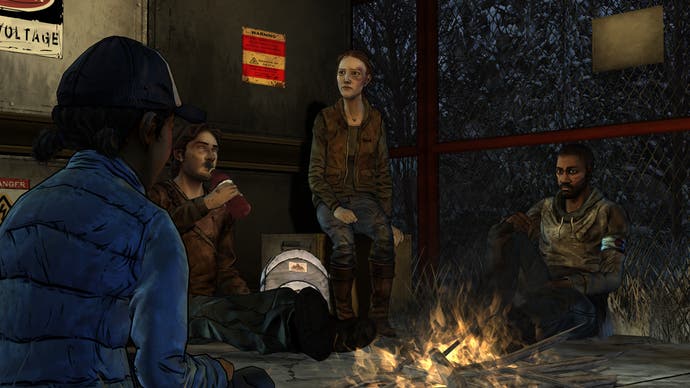
While the beatings are indefensible, this episode makes it clear that the decisions that emerge from his dark streak now have to be as much about the long game as anything else. Is bowing to his wishes just encouraging him down that dark path, enabling the man he's become? Or might giving time and showing tolerance pull him back? There's no easy answer on offer, no handy "light side" path; only gut instinct and hope, with every option on offer a cocktail of optimism and cynicism measured out with more than a little sadism by both the characters and the writing team.
It's worth noting that, while the first part of this episode is very much on rails - in fact, more than any other episode of the series so far, it's an interactive cut-scene with no puzzles to solve or even much scope to explore - it eventually blows wide open, with many different ways the tale can end. The finale I got was pretty much the perfect finale to this story - not the only way it could have gone, but the way I knew it had to end.
While the level of interactivity is a little disappointing, it's not so bad playing through a cut-scene when it's this well written. One highlight is a very Chrono Trigger-style moment when the gang camps out at an old power transformer for the evening, for one final moment of warmth. It's beautifully written, untroubled by jump scares or forced drama: a gentle if bittersweet moment of heart that both complements and contrasts with the darkness and pain that everyone knows is coming.
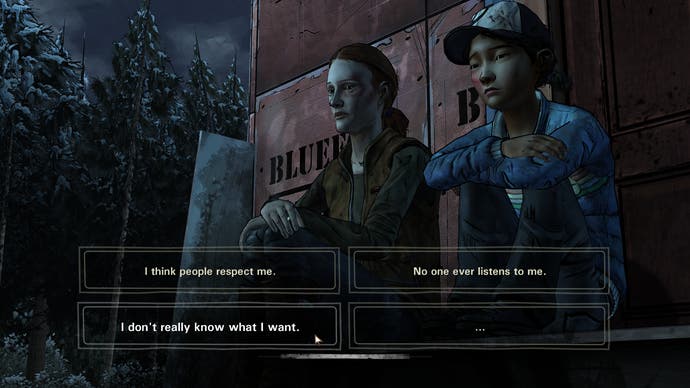
What this episode really hammers home is just how good Telltale's writing team is - to say nothing of their directors, actors, musicians, and everyone else who breathes life into these scenes - and just what they can achieve when allowed to stretch their legs a little bit. As an adventure game developer, Telltale's greatest flaw has always been that, after finding a template that works, it refuses to evolve or alter it save on a very superficial level. The first season of The Walking Dead stands out for so dramatically rewriting the rules, yet much of this season has suffocated, frustratingly, under the exact same jump-scares and reskinned encounters, while resorting too often to railroading or cancelling out the player's decisions when it suits.
For the third season, which has already been confirmed, it's to be hoped that we'll see more of that original freshness; that Telltale will find a new way to explore this world and have the confidence to make the decisions really count and the outcomes hurt as much as it feels like they should. But as far as this season is concerned, No Going Back does more than caps it off with aplomb; it drags the rest of it up by its braces and recasts it as something much more than the sum of its parts. It remains a shame that Clementine never quite became the truly different kind of lead that the first episode promised, but in the final analysis, what The Walking Dead offers still more than makes up for its occasional stumbles. It's definitely a road trip worth taking - as long as you don't mind its highs being its most devastating lows, its good endings being little but the trap where optimism goes to die.
